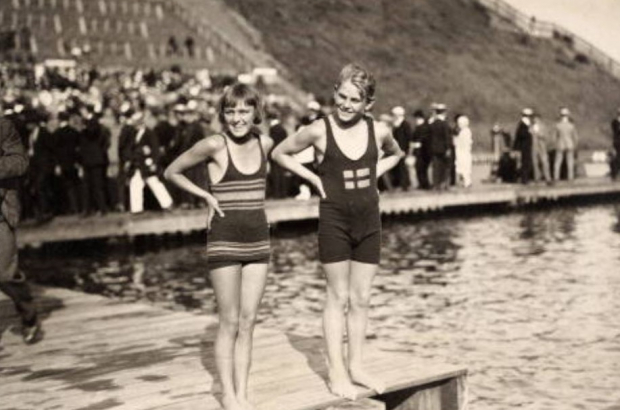- Daily & Weekly newsletters
- Buy & download The Bulletin
- Comment on our articles
100 years ago, the Olympic Games opened in post-war Antwerp
One hundred years ago this week, the opening ceremony of the seventh Olympic Games took place in Antwerp. It was the only time Belgium hosted the Games, but it was auspicious internationally, too: It was the first Olympics to follow the First World War.
Four years earlier, in 1916, the Games had been cancelled because of the war. It was the first time the event had been cancelled since the launch of the modern Olympiad in 1896.
Because Belgium had been at the centre of the conflict, there were concerns it was not up to hosting such a major event less than two years after the end of the war. This led to other cities quickly bidding to take over the Games that year.
But Antwerp, having been awarded the right to host the Games before the war had even begun, was having none of it. The International Olympic Committee gave it a right of refusal, which it did not take. The Opening Ceremony took place on 14 August, 1920.
Leaving the Games in Antwerp “was a recognition for the role that Belgium had played in the First World War,” KU Leuven professor emeritus Roland Renson, an expert in sport history and sociology, told Radio 1. “And that fact was ever present, from day one. At 10.00 on the opening day, the Cardinal invited all the athletes to Antwerp Cathedral for a blessing. And he gave a talk that could not be misinterpreted: ‘We are not savages’, he said, ‘but we resolve to civilise those who still are’.”
Antwerp had a massive job in front of it, obviously, to get ready in the 18 months it had when it was settled that the Games would be held there. It built a new stadium for the event, where the Opening Ceremony of 1920 took place.
Parts of the stadium were demolished and rebuilt over the years, so now there’s nothing left of the original. The current stadium is known locally as ’t Kiel, but its official name is Olympic Stadium It is home to Beerschot FC.
“The city had to build a stadium and find infrastructure for swimming, boxing, cycling and more,” said Renson. “And this during a post-war period of crisis. There were problems with labour and with lodgings. It was only because Antwerp had been approved to host the Games in 1914 and had already made some preparations that it was realisable at all.”

The opening ceremony in the new Olympic Stadium
It was also in 1920 that the Olympics introduced the flag with the logo of the five rings that is still in use today. While it was ready for the 1916 Olympics, it had to wait until it arrived in Antwerp to make its debut.
Antwerp had many events planned to recognise the Olympic Games of 1920 this summer, many of which have “fallen in the water,” as the Flemish say. Covid-19 had other plans for the city, which is considered a hot zone in the second wave of the virus.
While people are being advised not to travel to Antwerp, those who live and work there can still check some exhibitions devoted to the anniversary as well as take part in fun runs, with regular trivia on the 1920s Games.
For the rest of us, there is a very detailed website (in Dutch) put together by Antwerp’s Open Monument Day team that goes over the history of the Games, the monuments that were key to pulling off the 1920 event, which sport took place where and more. The City of Antwerp’s website devoted to the anniversary, meanwhile, includes events and activities that are still taking place as well as a bit of history on the unforgettable event in the port city.
Ironically, Belgium was plagued by a virus back then, too: The Spanish flu ravaged through Europe between 1918 and 1920. While it must have been a threat when the Olympics took place in the summer of 1920, not a word is mentioned about it in the documents related to the event.















